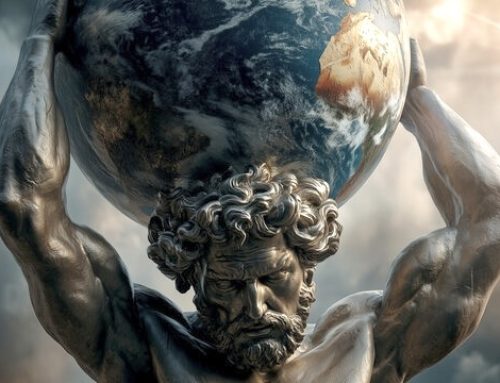What was most remarkable about the second Republican debate of the non-Trump presidential aspirants and the almost-but-not-quite shutdown of our federal government was how few Americans seemed to care. According to the Nielsen ratings service, viewership in the second debate dropped 38% from 12.8 million to 9.3 million—the lowest viewership since Trump became a candidate in 2015. As for the prospective shutdown, people were much more interested in the budding romance of Taylor Swift and Travis Kelce. (Creepily, they do look like siblings.) And, somewhat disconcerting to Democrats, a YouGov poll showed Dems (in Congress plus Biden) were blamed for the looming shutdown as much as Republican members of Congress, although more—44%—blamed both.
In an admittedly somewhat twisted manner, the current disinterest Americans feel toward presidential candidates and Congress warms my heart. I will take it as a sign they are now doing what I have long advocated: turning their attention toward their own lives and their communities to pursue their welfare through means other than our federal government. Building informal neural-styled networks to focus instead on the development of stronghold communities and looking only occasionally at the circus in Washington D.C.—principally as a masochistic form of entertainment. If “Traylor,” “Tayvis,” or is it “Swelce”(?), transform their romance into a presidential ticket, my money is on them. And yes, Ms. Swift would be at the top of the ticket.
After I did watch the second Republican debate, which reminded me of a bunch of kindergartners just before a much-needed nap time, and observing the complete dysfunction of Republicans in the House of Representatives who are controlled by the pervy and peevish Mr. Gaetz, it is apparent the only plausible prospect for new inspired leadership resides on the Democrat side of the political ledger.
If you are Donald Trump, Joe Biden, Robert F. Kennedy, Jr., Ron DeSantis, Nikki Haley, Chris Christie, Vivek Ramaswamy, Mike Pence, Tim Scott, Asa Hutchison, that guy from North Dakota, Marianne Williamson, or Cornel West, you actually share something in common besides running for president: the majority of Americans do not want you to be the next president of the United States.
Get over yourself and get off the stage.
Nor is a “No Labels” or other third-party candidate what America needs because that would virtually assure a Trump election inasmuch as it would dilute the vote for whomever the Democrats put up against Trump—presumably Biden. What we want are new candidates in both parties; preferably under 60 and not under indictment.
Is that so much to ask?
In my post of September 10th, “Let’s Get Really Real,” I called for Biden to step aside, give his blessing to a new roster of Democrat presidential prospects, and allow a process of debates, primaries, and the convention to sort out a new nominee. Several others—from pundits to columnists to scholars—followed with the same plea, but to no apparent avail. It turns out Biden, who promised he would be a “transition president,” has an ego, too. Since then, the data for his prospects of reelection continue to be highly uncertain, especially if there is a third-party candidate and in the face of growing discontent of younger voters who may just sit this election out. Notwithstanding the fact that millions of older Trump voters have passed on since 2020, if younger voters don’t show up that potential advantage for Democrats is lost.
I would not be at all surprised if neither Trump nor Biden were inaugurated in January 2025. I know it seems improbable today, but both are weak and getting weaker.
There is another way to save the 2024 presidential election, although it will be messy. The old-time brokered convention. Smoke filled rooms. Arm twisting and enemies who magically become friends, or at least temporary political allies acting in the interest of a majority of their party. This is the way we named nominees for decades. Convention delegates actually arrived at their conventions as free agents once the first ballot resulted in no clear winner. Eventually, this process was seen as undemocratic and the parties schemed to rid themselves of the cigar-smoking arm twisters like, for the Dems, creating so-called “super-delegates” (which itself is highly elitist and undemocratic). The move to a more transparent and ostensibly inclusive process was heralded as an advancement for democracy. It (sort of) made sense but, today, does it? Might it be relatively more democratic today to let delegates duke it out, especially with the level of burnout/apathy amongst the broader electorate?
Furthermore, the stranglehold the geriatric class of politicians have on America today, coupled with their insatiable appetite to stay in power, including Biden, Trump, McConnell, Pelosi, and Grassley—collectively the dentured not-so dynamos—there is an obvious oligarchy who represent a form of political constipation that today threatens democracy more than the party convention arm-twisters of yesteryear.
Our federal government needs an enema.
The last time a candidate was selected in a contested/brokered convention was Dwight D. Eisenhower in 1952, after which he served as president for two terms. Before that it was FDR in 1932 who served for twelve years. Generally, though, the concern at the party level has been to unite the party after such a contentious process. Yet, today, we need more choices. We need to have a pathway for as-yet undeclared candidates to see that it may be worthwhile to throw their hat in the ring, or be drafted by delegates. My expectation is that once one does others may follow if only to claim they are positioning themselves for 2028. Furthermore, it allows the party to (at least) force the incumbent—Biden in this case—to consider other alternatives for his choice of running mate which, in the case of Kamala Harris, allows the party to replace her with a stronger backup to Biden and enhance his chances next November.
Based on today’s polling that shows a high dissatisfaction with declared candidates, it is simply too early to lock-in candidates for either party. Incidentally, the Republicans may be forced into a brokered convention if Trump’s legal woes manifest into higher uncertainty as to his capacity to serve another term. If that occurs, it is even more critical that the Democrats open up their process to have an equal advantage to consider all the possibilities.
We are thirteen months out from the general election. Neither party is served well with their current frontrunners. Strategically, openness and flexibility in the nomination process fits with periods of high uncertainty and long lead-times. Many, like Obama’s former advisor David Axelrod, argue it is too late; to which I—as politely as possible—respond, bullshit. The American electorate is hungry for more and better choices and is quite capable of turning quickly in favor of new intrigue—as in Traylor/Tayvis/Swelce from the world of celebrity couples. The party that understands this first may significantly improve their chances later not only with a better candidate, but with a reinvigorated electorate—including independents who will likely decide the winner, anyway.
It will take some courage but that is, after all, a foundational characteristic of leadership.






